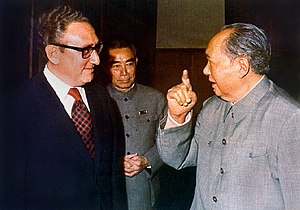Innovation tops many agenda's, from individuals, organizations and countries. But what innovation actually is and how to deal with it, outside high-brow and often mythical debates, remains illusive.
Bill Fischer and Andy Boyton have in their recently released "
The Idea Hunter: How to Find the Best Ideas and Make them Happen" produced an excellent guide on how to hunt for ideas and get them in place. They describe the core of innovation and - apart from giving very down-to-earth advice - they turn around arguments I have witnessed in many of the innovation debates.
My apologies when I focus on the China angle here, it is my angle and not of the book, but I learned a few important lessons from the book that should reflect on the debate on how innovative China actually is.
Is China not the 'cut-and-paste' country where few original ideas are the basis of its innovation? Is China able to be innovative, because of its cultural inhibitions? Is its neglect for intellectual property not actually stealing from others? Fischer and Boyton turn around that concept and argue that innovation is mostly a cut-and-past process, and mostly not producing new and original ideas. The better strategy is try existing ideas are use them in a different setting, they argue.
This is an extremely important attitude for an Idea Hunter. Trying to come up with thoroughly original ideas all the time ... is a losing game. The better plan is to identify potentially valuable ideas that either are already being used or have been used in the past. The task then is to slip those ideas into your setting or circumstances.
They use a wide range of examples to illustrate their point. Take for example
Sam Walton, the founder of
Wal-Mart:
Walton made a habit of prowling for ideas in other people's stores... It was "just part of the educational process," part of his regular exercise. ... Walton had the right attitude as an Idea Hunter. "You can learn from everybody," he taught. "I probably learned the most by studying what my competitor was doing across the street." He gladly conceded that all the ideas tried at Wal-Mart, such as how and where to display items, were copied from stores. His wife, Helen, says he seemed to spend almost as much time in other people's stores as he did in his own.
Let's put this in black and white. In Europe, for example in my native country The Netherlands, basic research seems to be the holy grail of innovation. Original ideas are presented in TV-shows and are funded by the government. We look in admiration at a company like
Philips whose research department has been famous for groundbreaking basic research. And, yes, we know all that basic research seldom left the corporate labs, because there was a huge disconnect with their marketing and what consumers really wanted.
Is from that perspective China not much more innovative? And should the innovation debate not be focused more on what we actually get from it, in stead of conducting intellectual debates on concepts and principles that add little value?
Bill Fischer is a speaker at the China Speakers Bureau. Do you need him at your meeting or conference? Do get in touch.
Labels: Bill Fischer, China, China Speakers Bureau, innovation


















